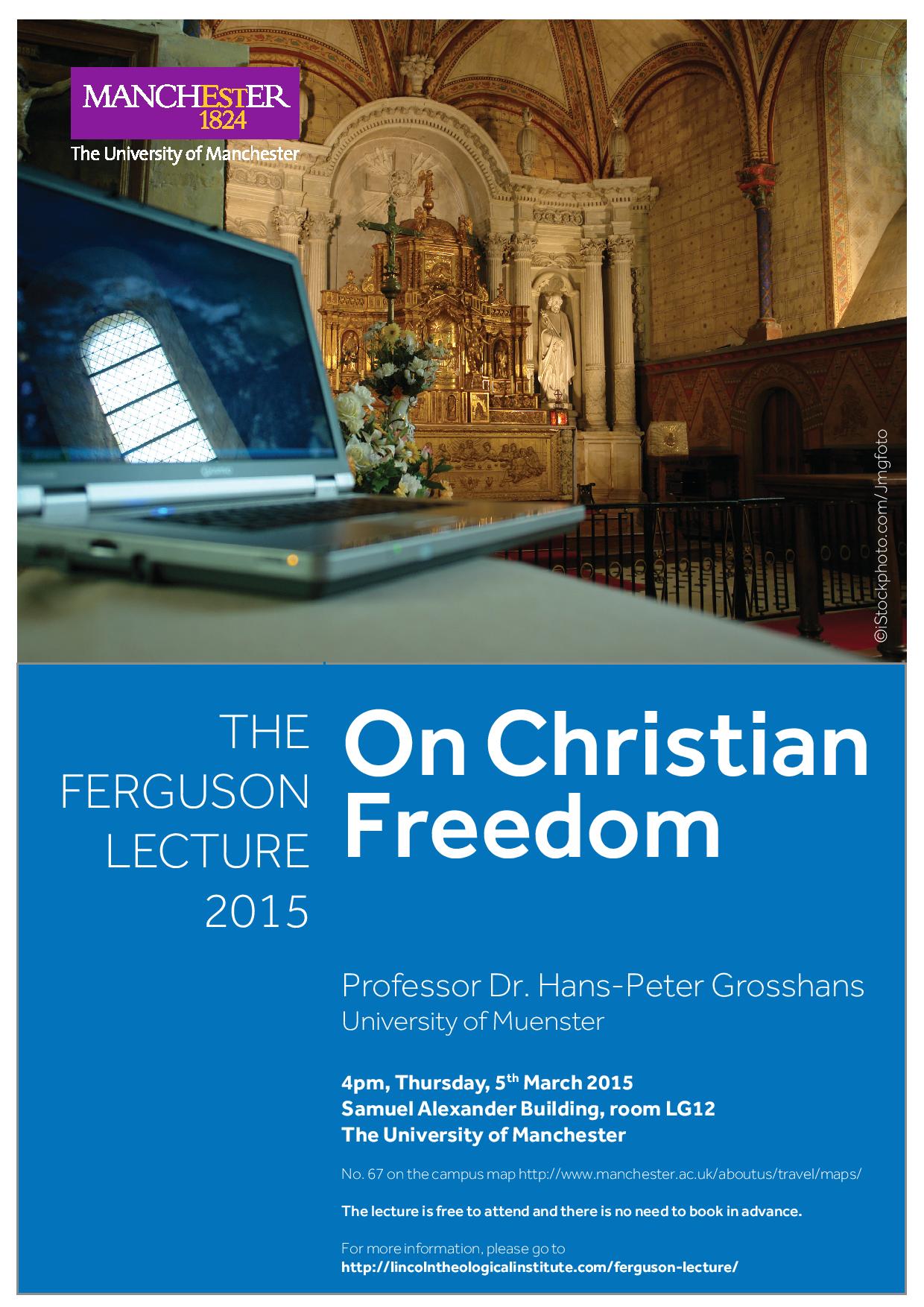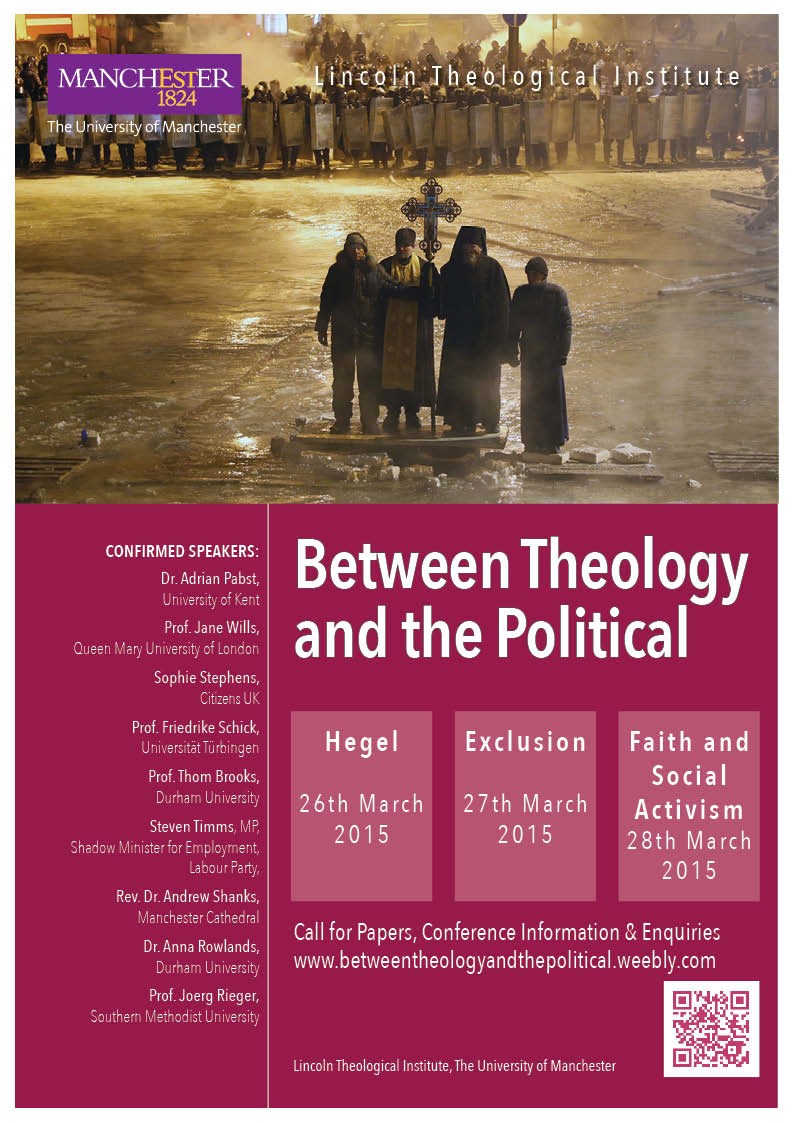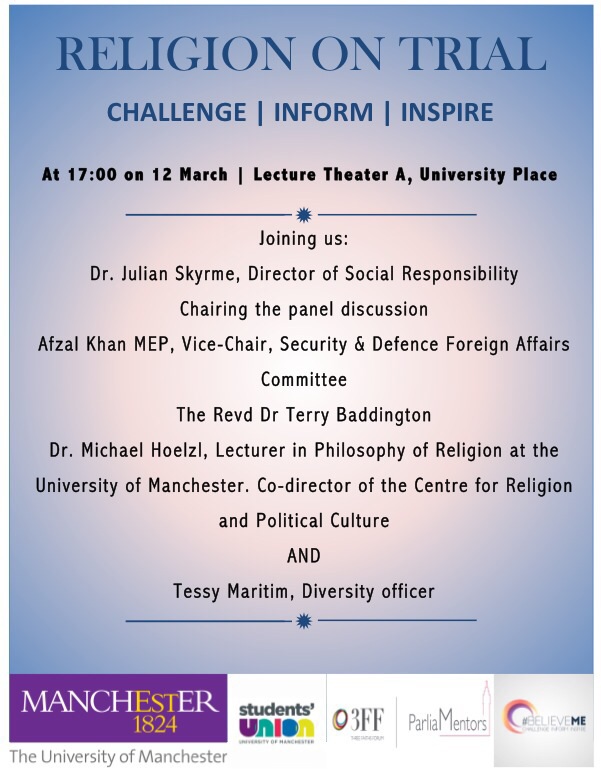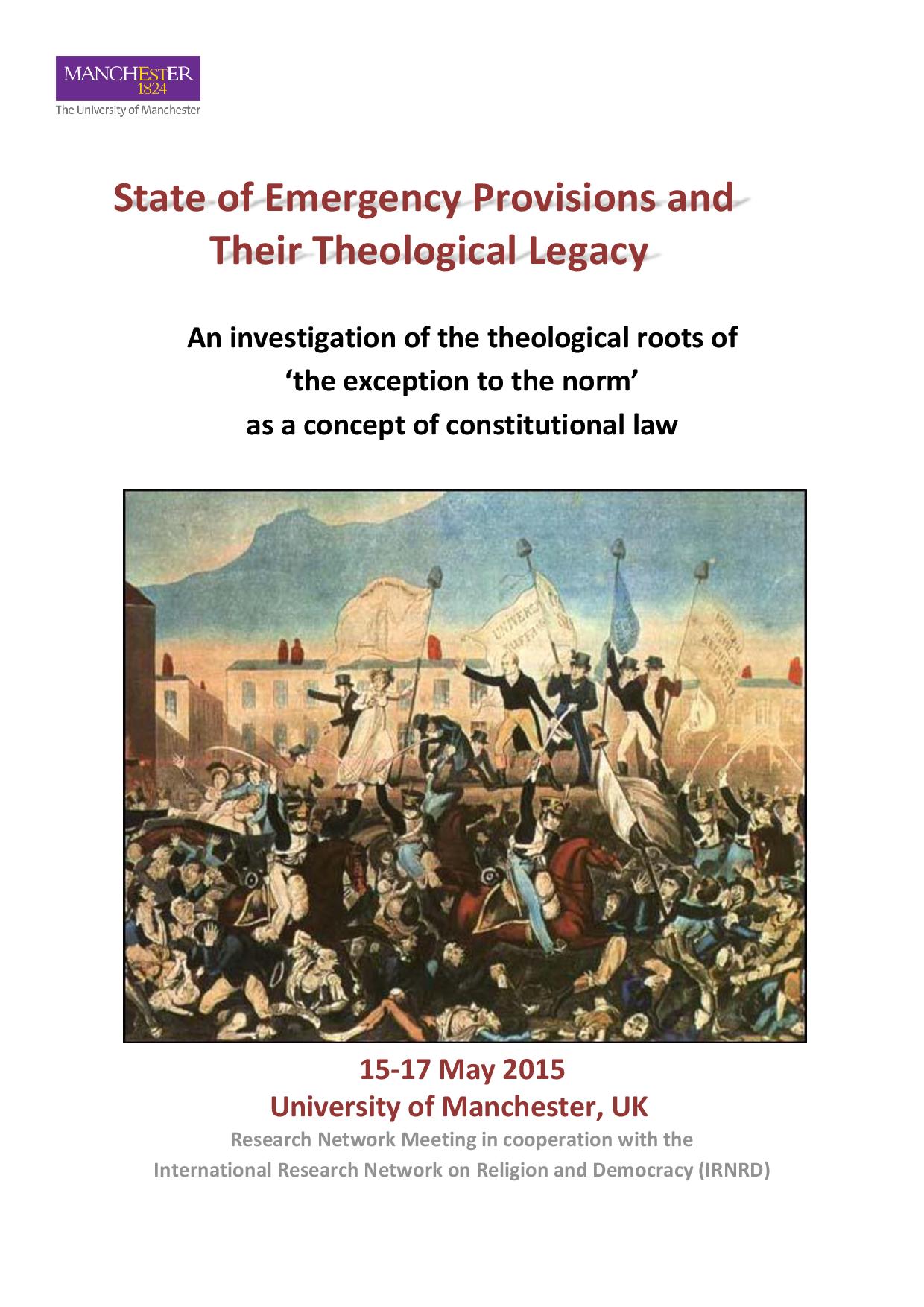 March 9, 2015
March 9, 2015 The conference and network meeting of the International Research Network on Religion and Democracy will focus on ‘state of emergency provisions’ and their religious and theological background. The key question is: What are the criteria to legitimately deviate from the normal state of affairs and to make an exception normative? A legitimate deviation from law or the existing order entails at least three elements:
a) The existing order is under threat and therefore swift action is needed;
b) Who is authorised to declare a state of emergency and what are the moral prerequisites?
In a situation when such deviation from the norm or existing law is required, ethical issues arise. Who is entitled to legitimately breach the existing norm/law, which civil rights might be suspended in order to successfully encounter the threat; and finally:
c) What defines the threat, which legitimises extraordinary measures?
In Constitutional Law and Political Theory the ‘state of emergency’ is a well-known paradox i.e. the concrete circumstance that demands a legitimate breach of an existing order to secure the existence of a lawful order. Given the classic criteria for a state of emergency, this project aims to uncover the theological basis, such as equity, asylum, grace and pardon etc. of the juridical concept of a state of emergency in all its facets.
This will be also the focus of the public lecture on Saturday May 16th 2015 "Can Religion replace the Constitution"?
Hosts:
Research Network for Religion and Political Culture
Globalisation Studies Groningen
International Research Network on Religion and Democracy
For more information see:
http://emergencymapping.org/conference.html
THE SAMUEL FERGUSON LECTURE
 February 12, 2015
February 12, 2015 
2015 - Prof. Dr. Hans-Peter Grosshans
Director of the Seminar for Systematic Theology and the Institute for Ecumenical Theology, Faculty of Protestant Theology of the University of Muenster.
‘On Christian Freedom’
In his latest book Soumission (submission) the French novelist Michel Houellebecq formulates the – as one of his figures says – simple idea, that the peak of human happiness is reached in absolute submission. In religion we find this idea in form of the submission of human beings to God. But this idea contradicts all the theological efforts in modern times to reconcile faith in God with human freedom. In modern times especially Christian religion cannot any longer be based on the idea of a general submission of the believers to God and his will. Instead Christian theology has to concentrate on a positive relation between faith in God and human freedom, in the sense, that even the God-relation of the believers is conceived in terms of human freedom. In Reformation times in the 16th century Philipp Melanchthon has even identified Christianity and freedom when he formulated “Christianity is freedom”. But surely this identity is not without problems and some critics say, that it directly leads into secularisation and is part of Christianity abandoning itself. The lecture will discuss various important aspects of the relation of Christian faith and freedom, starting with the understanding of freedom in the Old and the New Testament. But the main focus will be on the consequences for a concept of God in modern times which satisfies the condition of human freedom, but as well is sound with Holy Scripture. Discussion will be as well about the consequences for our general understanding of religion in the present times, which is sound with human freedom. This then will be drawn out into pressing questions of religious freedom in our present societies. It will be the objective of these reflections to work out a few criteria for distinguishing critically the manifold phenomena of religion.
FINAL CALL FOR PAPERS: Theology and Exclusion
 January 21, 2015
January 21, 2015 
Being A Christian Student (Reflective Workshop at Nexus Cafe
 January 21, 2015
January 21, 2015 
New LTI Briefing Paper: Post-liberalism and the Religious Turn
 November 24, 2014
November 24, 2014 
This briefing paper (part of the What's Next for Individualism project) explores the religious roots of a quiet revolution taking place in Britain’s two main political parties in the form of Blue Labour and Red Toryism. Placing religious language at the centre of their conception of public life, these movements offer a decisive to both Thatcherism and New Labour. By creatively draws on strands of Catholic Social Thought, Burkean conservatism and English Radicalism, both offer a decidedly Post-liberal model of politics
You can view this Briefing Paper here: http://religionandcivilsociety.com/wnfi-briefingpapers


